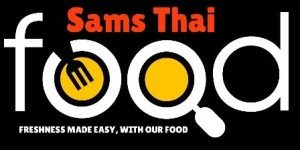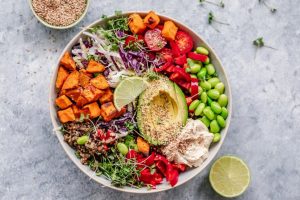
Thai cuisine is renowned for its vibrant flavors, aromatic spices, and diverse ingredients. Beyond its culinary delights, Thai food offers a myriad of health benefits, thanks to its emphasis on fresh produce, herbs, and spices.
In recent years, the integration of Thai food principles into exosome treatment has garnered attention for its potential to enhance health outcomes and promote overall well-being.
In this comprehensive guide, we delve into the health benefits of Thai food and its role in complementing exosome treatment, highlighting key ingredients, culinary practices, and scientific insights.
Introduction
Exosome treatment has emerged as a promising therapeutic approach for various health conditions, harnessing the regenerative properties of exosomes derived from stem cells.
These tiny vesicles contain a potent mix of proteins, lipids, and genetic material, facilitating cell-to-cell communication and tissue repair.
While exosome therapy offers exciting possibilities for regenerative medicine, the integration of Thai food principles adds another dimension to its effectiveness.
With its focus on fresh, nutrient-rich ingredients and traditional herbal remedies, Thai cuisine aligns closely with the principles of holistic healing and wellness. Let’s explore the health benefits of Thai food and its synergistic relationship with exosome treatment.
Key Health Benefits of Thai Food
Thai food offers a multitude of health benefits, primarily derived from its use of fresh herbs, spices, and nutrient-rich ingredients:
Nutrient-Dense Ingredients
Thai cuisine incorporates an abundance of fresh herbs and vegetables such as lemongrass, cilantro, and Thai basil, which are rich in vitamins, minerals, and antioxidants.
Coconut milk and oil, commonly used in Thai cooking, provide healthy fats that support brain health, metabolism, and immune function.
Anti-inflammatory Properties
A staple spice in Thai cuisine, turmeric contains curcumin, a potent anti-inflammatory compound that may help alleviate pain and reduce inflammation associated with various health conditions.
Another common ingredient, ginger offers anti-inflammatory and digestive health benefits, promoting gastrointestinal health and easing nausea.

Digestive Health
Thai dishes often feature a combination of spices and aromatic herbs like galangal, kaffir lime leaves, and coriander seeds, which aid digestion and improve nutrient absorption.
Fermented condiments such as fish sauce and shrimp paste add depth of flavor to Thai cuisine while providing probiotics that support gut health.
Heart Health
Thai herbal teas made from lemongrass, pandan leaves, and butterfly pea flowers offer cardiovascular benefits, helping to regulate blood pressure and improve circulation.
Fish and seafood, commonly used in Thai dishes, are rich sources of omega-3 fatty acids that support heart health and reduce the risk of cardiovascular disease.
Immune Support
Thai cuisine incorporates citrus fruits such as lime, tamarind, and pomelo, which are rich in vitamin C and antioxidants that bolster the immune system and promote overall health.
These aromatic ingredients possess antibacterial and antiviral properties, helping to ward off infections and strengthen the body’s defenses.
Synergistic Relationship with Exosome Treatment
The synergistic relationship between Thai food and exosome treatment lies in their shared focus on promoting cellular health and overall well-being.
Enhanced Cellular Communication
Enhanced cellular communication refers to the optimization and improvement of the exchange of signals and information between cells within an organism.
Bioactive Compounds: The bioactive compounds found in Thai food ingredients may complement exosome treatment by enhancing cellular communication and facilitating the uptake of exosomal cargo for tissue repair and regeneration.
Antioxidants: Antioxidants present in Thai herbs and spices help protect cells from oxidative stress, potentially enhancing the therapeutic effects of exosome therapy and promoting tissue healing.

Anti-inflammatory Effects
Anti-inflammatory effects refer to the ability of certain substances, such as foods, supplements, or medications, to reduce inflammation in the body.
Curcumin and Ginger: The anti-inflammatory properties of curcumin and ginger may synergize with exosome treatment to reduce inflammation and support the healing process in conditions such as arthritis, tendonitis, and autoimmune disorders.
Gut Health and Absorption
Gut health and absorption are closely interconnected processes vital for overall well-being.
Probiotics and Prebiotics: Thai fermented foods provide probiotics that support gut health and enhance nutrient absorption, potentially optimizing the delivery and efficacy of exosome therapy in gastrointestinal conditions.
Overall Well-being
Overall well-being encompasses a holistic state of health and happiness that extends beyond physical fitness to encompass mental, emotional, and social aspects of life.
Holistic Approach: The holistic approach of enjoying Thai cuisine, focusing on fresh, whole foods and herbal remedies, aligns with the principles of holistic healing and wellness promoted by exosome therapy, fostering overall well-being and vitality.
Incorporating Thai Food into Exosome Treatment Regimens
Incorporating Thai food into exosome treatment regimens involves adopting a balanced diet rich in fresh vegetables, lean proteins, healthy fats, and whole grains:
Nutrition Guidance
Integrating Thai food into exosome treatment regimens involves incorporating a balanced diet rich in fresh vegetables, lean proteins, healthy fats, and whole grains, while minimizing processed foods and added sugars.
Exploring the diverse flavors and ingredients of Thai cuisine ensures a nutrient-rich diet that supports cellular health and complements the regenerative effects of exosome therapy.
Herbal Supplements and Remedies
Drinking Thai herbal teas made from lemongrass, ginger, and other medicinal herbs provides additional health benefits and complements the therapeutic effects of exosome treatment.
Incorporating herbal supplements such as turmeric capsules or ginger extracts may enhance the anti-inflammatory and immune-boosting effects of exosome therapy.
Culinary Practices and Cooking Techniques
Thai cooking emphasizes a balance of sweet, sour, salty, and spicy flavors, which can be achieved by incorporating ingredients such as palm sugar, lime juice, fish sauce, and chili peppers.
Opting for steaming, grilling, or stir-frying instead of deep-frying reduces the intake of unhealthy fats and calories while preserving the nutritional integrity of ingredients.

Conclusion
Thai food offers a wealth of health benefits, ranging from anti-inflammatory and digestive support to immune-boosting and heart-healthy properties, making it an ideal choice for a healthy meal.
When combined with exosome treatment, Thai cuisine complements the regenerative effects of therapy, enhancing cellular communication, reducing inflammation, and supporting overall well-being.
By incorporating fresh, nutrient-rich ingredients, herbal remedies, and culinary practices into exosome treatment regimens, individuals can maximize the therapeutic potential of both Thai food and exosome therapy, paving the way for improved health outcomes and vitality.








